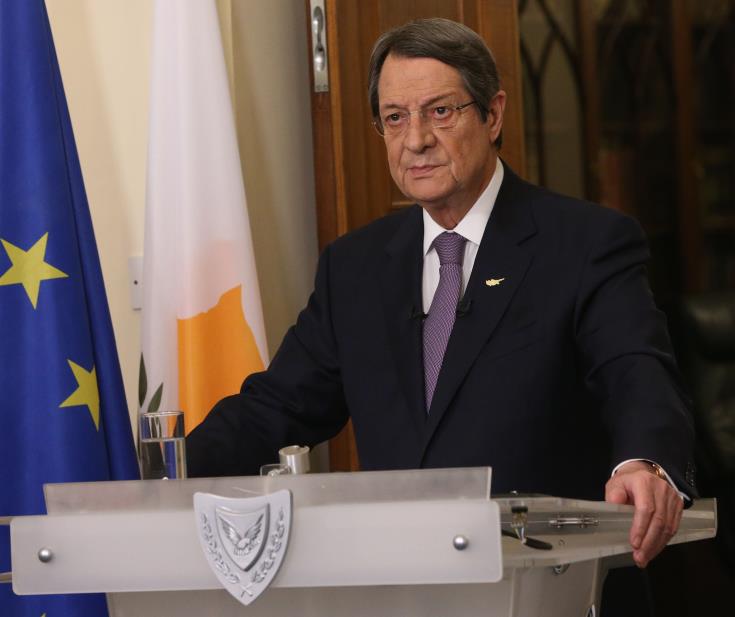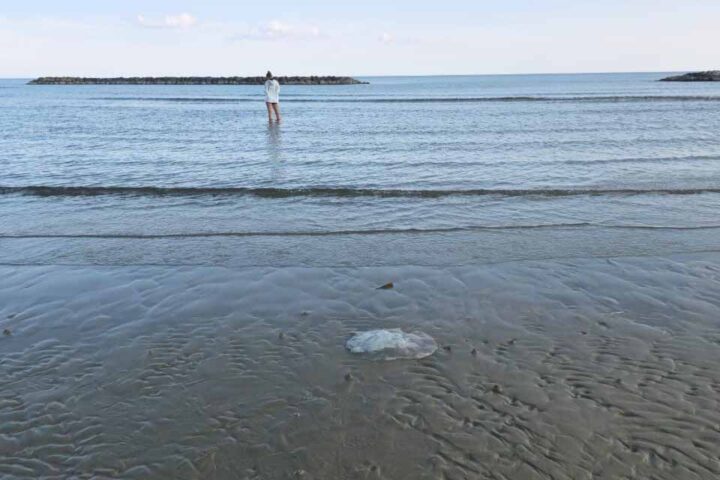Cypriot President Nicos Anastasiades denounced Turkey’s “aggressiveness” and urged talks to resolve a row over maritime borders and gas drilling rights, warning spiralling Mediterranean tensions risked destabilising the region.
Tensions are running high over Turkey’s maritime drilling activities in the eastern Mediterranean which Cyprus, and its ally Greece, say violate their sovereignty.
“There is an aggressiveness, with an intention to control the whole area,” Anastasiades told AFP, adding the situation was “extremely volatile and worrisome”.
On August 10 Ankara deployed the Oruc Reis research vessel and an escorting flotilla of warships to disputed waters between Cyprus and the Greek islands of Kastellorizo and Crete.
Anastasiades condemned Ankara for what he called “provocations” as well as “violations of international law” that invade Cyprus’s “own exclusive economic zone.”
Ankara was “putting the stability and the security of the whole region at risk,” he warned.
“Turkey’s continued illegal drilling operations … have led to the intense militarisation of our neighbourhood,” the Cypriot leader added in an interview at the presidential palace in Nicosia.
Turkey lays claim to about 40 per cent of Cyprus’s exclusive economic zone (EEZ), claims which Nicosia rejects.
Instead, Anastasiades has proposed setting up an escrow account to bank a share of any future profits from exploiting the untapped, and potentially lucrative, offshore gas fields for Turkish Cypriots to use. But in return, Ankara must recognise Cyprus’s EEZ.
“We have done our utmost in order to safeguard and protect the rights of our co-patriots, so there is no excuse for Turkey,” he insisted.
Dialogue needed
Amid fears of an open conflict, Anastasiades stressed that if the United Nations and the international community took the necessary steps “we might avoid any further escalation”.
Both Greece and Turkey have staged naval drills in the area to assert their sovereign claims and the European Union on August 28 warned Ankara to pull back or face EU sanctions.
NATO chief Jens Stoltenberg on Thursday said Greek and Turkish leaders “agreed to enter into technical talks at NATO to establish mechanisms for military de-confliction”.
But Athens said Friday it had not agreed to such talks, prompting Ankara to accuse it of shunning dialogue.
The Cypriot president insisted his country did not want to see sanctions imposed on Turkey.
“It is not our aim, the sanctions. Our aim is to see that through dialogue we can reach a settlement which would be absolutely compatible with what the international law is saying,” he said.
He urged Turkey to agree to either take the matter to the International Court of Justice in The Hague, or to international arbitration.
Cyprus has been divided since 1974 when Turkey occupied its northern third in response to a coup engineered by the military junta then ruling in Athens that sought to unite the island with Greece.
The breakaway part declared itself the Turkish Republic of Northern Cyprus, but it is only recognised by Ankara. Decades of stop-start talks, mostly under UN auspices, have failed to achieve reconciliation.
Deepening ties
The Cypriot leader also praised the “firm stance” taken by France in the current crisis, saying Paris had been “a leading voice in what Europe should do in order to protect the member states from this aggressiveness”.
The two countries have vowed to deepen their ties, including defence cooperation.
Last week three Rafale jets, a frigate and a helicopter took part in joint military exercises in the eastern Mediterranean with Greece, Cyprus and Italy, flying out of an airbase in the southwest coastal town of Paphos.
If Ankara fails to reduce the tensions, EU measures could be discussed at the next meeting of the European Council on September 24 and 25.
EU diplomatic chief Josep Borrell said sanctions could be placed on ships or other assets involved in the drilling, as well as prohibiting the use of EU ports and supplies.
Wide-ranging sanctions against whole sectors of the Turkish economy could also be considered, Borrell added.
Anastasiades meanwhile praised the “positive” move this week by the United States to partially lift a three-decade-old arms embargo by allowing sales of non-lethal military equipment.
He rebuffed, however, a reported request from US ambassador Judith Garber to deny Russian military vessels access to Cypriot ports for refuelling and other services.
As a small country still under occupation, Cyprus has to maintain “excellent relations with all permanent members of the UN Security Council”, he insisted.
Such visits by military vessels “are always welcome for as long as they are not using any of our ports to attack our neighbours”. (source AFP)










